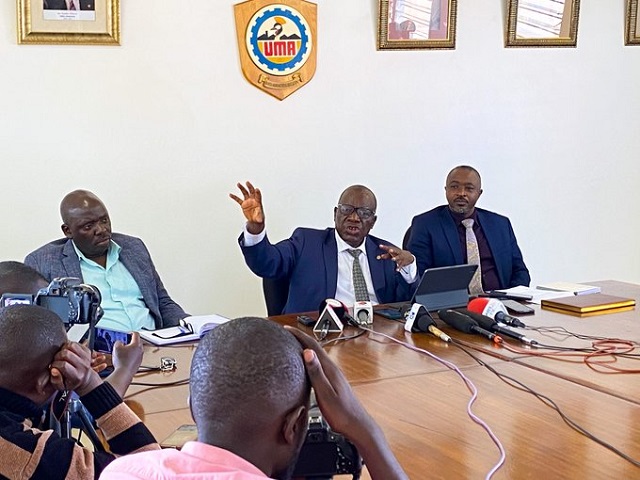
SPECIAL REPORT | THE INDEPENDENT | The Uganda Manufacturers Association has offered support for the Electronic Fiscal Receipting and Invoicing System (EFRIS) but faults the government agencies on aspects of its implementation.
UMA Chairman, Deo Kayemba says while the system is vital to ensure proper tax administration, the taxpayers do not understand it, nor do they even understand the tax regime, a situation that should have called for proper sensitization of the masses before implementation.
EFRIS is a system that enables business operators to transact and manage the issuance of e-receipts and e-invoices in real-time. It is therefore a modern tool that simplifies all business transactions and their management daily.
Once a transaction is initiated using any of the solution’s components, transaction details are transmitted to the tax body in real time to generate e-receipts and e-invoices.
The system, which was adopted across several East African countries is mainly designed to monitor the payment of value-added tax (VAT) and also ensure proper record-keeping by the business community.
The traders in Kampala and neighboring areas have been protesting the solution saying it leads to double taxation since the merchandise they deal in has already been taxed at the factory or wholesale point.
URA however, dismisses this argument, saying that VAT is charged at all levels of the supply chain of a product according to the laws.
Uganda Revenue Authority says since the EFRIS solution was launched they have been sensitizing the business community and other taxpayers about it, its importance, and how it works, and so, according to the tax body, it is unfair to say it was abruptly implemented.
“Even before the recent standoff, we have consistently engaged with various trade associations and taxpayers. These mutual discussions have consistently led to solutions. For instance, KACITA recognized URA as the most engaging government body,” says Commissioner General John Musinguzi.
Kayemba also says that the installation of the equipment to process the electronic invoices and receipts is supposed to be a responsibility of URA, and that traders who have installed them should have some compensation.
He, therefore, says that the penalty of 6 million shillings to defaulting traders is unfair and that the implantation should have been in a phased way to ensure that the system is adopted steadily and smoothly.
The manufacturers also suggested that VAT should be payable by businesses that are at least 50,000 dollars (about 191 million shillings) in capitalization, which is also the amount that is required for a local investor to get an investment license.
Kayemba called on the authorities to continue dialoguing with the aggrieved traders to find solutions to all the outstanding issues that have led to the disruption of the trade order in the country.
These also include complaints about manufacturers that have established retail outlets for their products, which, he agrees, is a real example of unfair trade competition.
Despite the enactment of the Competition Act 2023, and the presidential assent to it, it has not been implemented, yet it has responses to most of the issues being raised by the traders.
Kayemba says a committee should be set up and regulations issued to operationalize this law as soon as possible.
Regarding the taxation of garments, UMA said it was opposed to varying the specific duty rates applicable to some tariff lines in the textile trade.
The protesting traders have called for the immediate suspension of the 3 and 3.5-dollar tax per kilogram of fabrics and garments, respectively, saying that it was making no business sense for them to operate.
However, Chairman Kayemba said this duty on imported finished textile products is necessary to promote the local industry by ensuring less competition from the imports.
Giving praise to the tax amendment which was first introduced in 2021, Kayemba said, its implementation has led to increased investment in to the local textile industry.
*****
URN
 The Independent Uganda: You get the Truth we Pay the Price
The Independent Uganda: You get the Truth we Pay the Price


